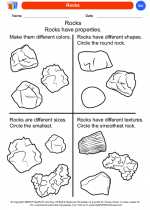Zygote
A zygote is the initial cell that forms when two gametes - a sperm from a male and an egg from a female - combine during fertilization. This process marks the beginning of a new organism's development, as the zygote contains a complete set of chromosomes, half from each parent.
Formation of Zygote
When a sperm cell fertilizes an egg cell, the two gametes merge their genetic material, resulting in the formation of a zygote. This typically occurs in the fallopian tube of the female reproductive system.
Characteristics of Zygote
- Chromosomes: The zygote contains a complete set of chromosomes, with half contributed by the sperm and half by the egg.
- Cell Division: Following fertilization, the zygote undergoes rapid cell division, leading to the formation of an embryo.
- Genetic Material: The zygote carries the genetic information from both parents, determining the traits and characteristics of the new organism.
Importance of Zygote
The zygote is crucial in the process of reproduction, as it represents the beginning of a new individual's life. It contains the genetic blueprint that will guide the development of the organism through subsequent stages of growth and maturation.
Study Guide
To study the concept of zygote, consider the following key points:
- Understand the process of fertilization and the union of sperm and egg.
- Learn about the structure and composition of a zygote, including its genetic makeup.
- Explore the significance of the zygote in the development of new organisms.
- Examine the stages of development following the formation of the zygote.
By understanding the formation and characteristics of the zygote, you can gain insight into the early stages of development in living organisms.
[Zygote] Related Worksheets and Study Guides:
.◂Science Worksheets and Study Guides Kindergarten. Our Earth

 Coloring Worksheet
Coloring Worksheet
 Coloring Worksheet
Coloring Worksheet
 Coloring Worksheet
Coloring Worksheet
 Coloring Worksheet
Coloring Worksheet
 Coloring Worksheet
Coloring Worksheet
 Coloring Worksheet
Coloring Worksheet
 Coloring Worksheet
Coloring Worksheet
 Coloring Worksheet
Coloring Worksheet
 Coloring Worksheet
Coloring Worksheet
 Coloring Worksheet
Coloring Worksheet
 Coloring Worksheet
Coloring Worksheet
 Coloring Worksheet
Coloring Worksheet
 Coloring Worksheet
Coloring Worksheet
 Coloring Worksheet
Coloring Worksheet
 Coloring Worksheet
Coloring Worksheet
 Coloring Worksheet
Coloring Worksheet
 Coloring Worksheet
Coloring Worksheet
 Coloring Worksheet
Coloring Worksheet
 Coloring Worksheet
Coloring Worksheet
